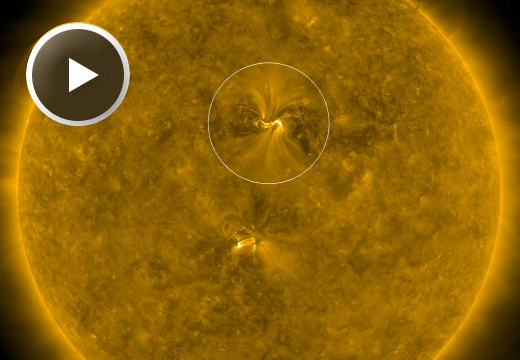In time of solar minimum, it is pretty rare to get a solar flare and especially a CME. For example, the sun had no sunspots for the entire month of Feb. 2019. Well, this morning, March 8th at 0319 UT, the magnetic field of sunspot AR2734 became unstable and exploded. The result was a C1-class solar flare aimed directly at Earth.

NASA’s Solar Dynamics Observatory recorded the slowly unfolding explosion:
In the video of the explosion, you can see a shadowy shock wave billowing away from the blast site like a ripple in a giant pond. This is a sign that the blast may have hurled a coronal mass ejection (CME) into space, possibly toward Earth. Radio emissions from the shock wave suggest an expansion velocity of more than 600 km/s (1.3 million mph).
SOHO coronagraphs confirm that a faint CME left the sun. It is however still unknown if the of the storm cloud’s trajectory to see if there is an Earth-directed component.
The sun had no sunspots for the entire month of Feb. 2019. There is currently a minor stream of solar wind gently buffeting Earth’s magnetic field today… However, it is not strong enough to cause a full-fledged geomagnetic storm. The light show could soon intensify if today’s solar flare hurled a CME toward Earth.
[SpaceWeather, Soho]











